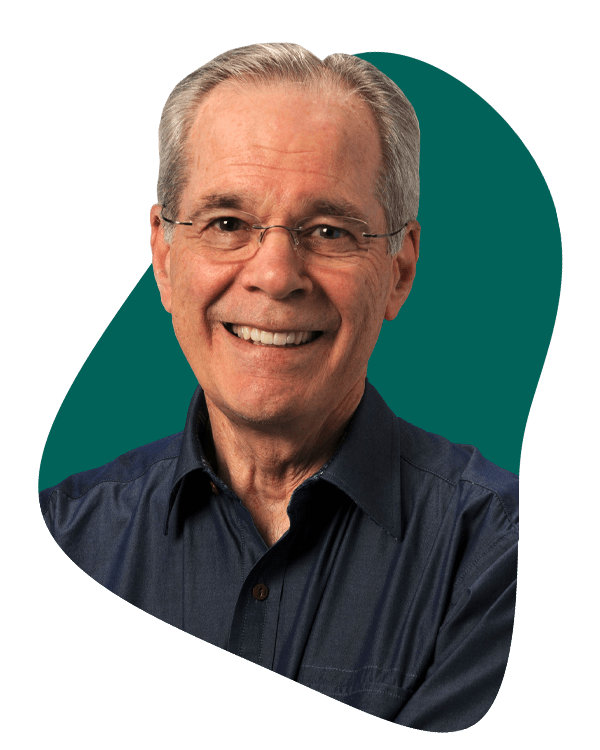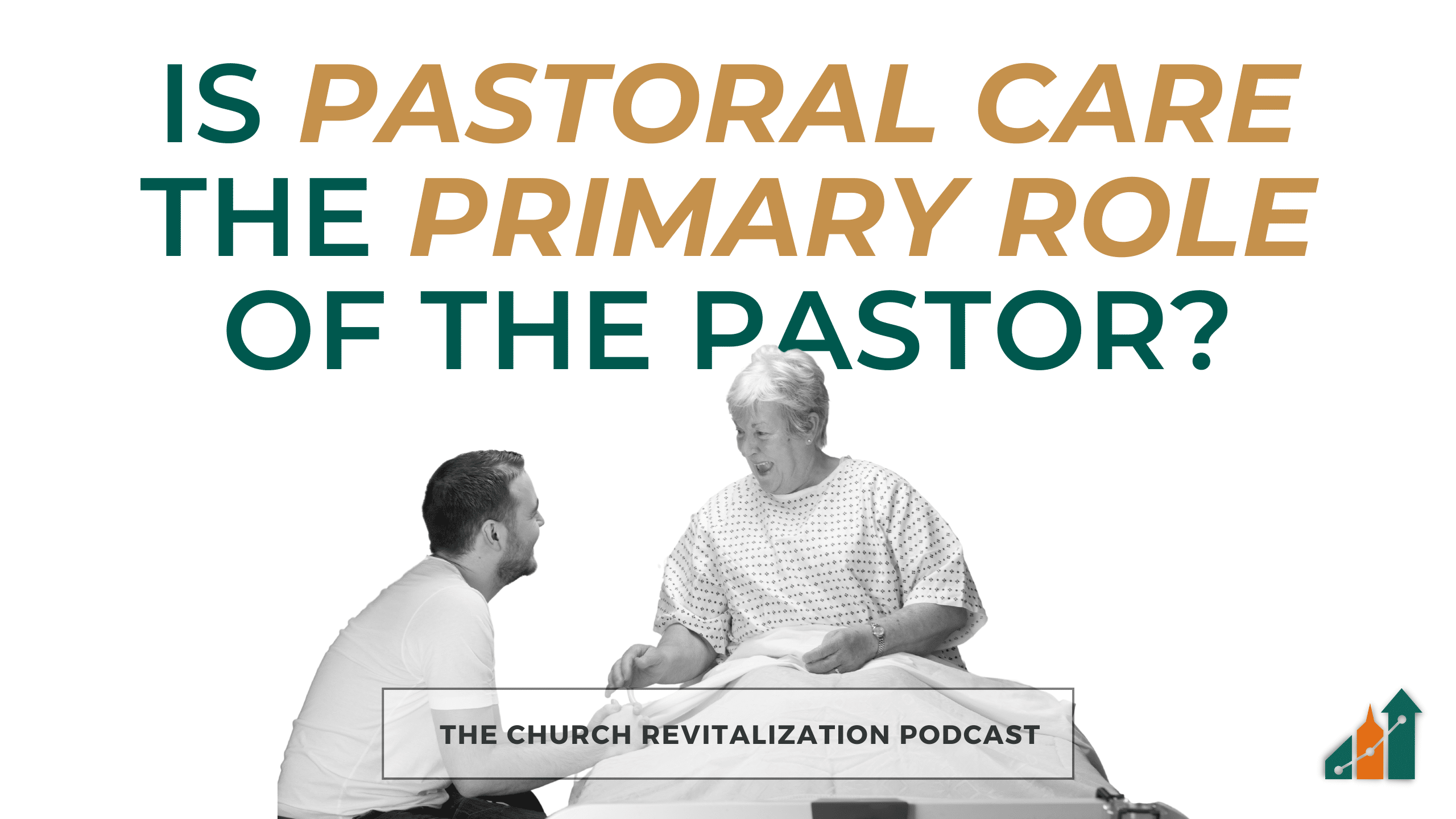The Church Revitalization Podcast – Episode 196
The following article is published as Appendix C in Dr. Malphurs Book, Being Leaders.
God has allowed me not only to teach leadership at Dallas Seminary, but to minister in numerous churches and denominations as a consultant and trainer. As I work with various leaders, I’ve come across a fundamental assumption upon which some base their pastoral paradigm. It’s the assumption that the primary and foremost role of the pastor is to provide pastoral care for the congregation-to take care of the sheep. This would include such hands-on care as visitation in the hospital and at home, counseling, care during a crisis, etc.
However, I would challenge this assumption both biblically (exegetically) and practically. I believe that while pastoral care is a function of the pastorate, it’s not the primary nor the foremost role of the pastor.
The primary responsibility of the pastor is to lead the congregation which includes such things as teaching the Scriptures, propagating the mission, casting a vision, strategizing to accomplish the church’s mission, protecting the sheep from false teaching, and other functions. I’ll say more about this later.
Subscribe below to never miss an episode.
Leaders as Shepherds
First and foremost the role of the pastor is to lead the congregation. Both the Old Testament and the New Testament use shepherd imagery of leaders, but a study of such passages reveals that this imagery refers to leadership more than pastoral care.
We begin with an examination of the shepherd metaphor in the Old Testament. While pastoral care may have been an aspect of what some leaders in the Old Testament did, their primary role was that of leadership. For example, the prophets and God commonly used the term shepherd of the political leaders of Israel and the nations (2 Samuel 7:7, Isaiah 44:28, Jeremiah 25:34-38, and Ezekiel 34:1-4). The emphasis here is clearly upon them as leaders. In Psalm 78:70-72, the psalmist writes of David as Israel’s shepherd. Is he referring here to David as the primary care-giver or leader of the nation? The answer is found in verse 72, where he uses parallelism.
First, he says that David shepherded Israel with integrity of heart. Then he follows with a parallel statement, “with skillful hands he led them.” The latter term led explains the former shepherded. We see much the same in 2 Samuel 5:2, where the Israelites said to David, “And the Lord said to you, ‘you will shepherd my people Israel, and you will become their ruler.’” Whether or not these leaders provided some pastoral care type functions, the main thrust of what they did was to lead people.
The New Testament picks up on this imagery and uses it of the Savior, emphasizing specifically his leadership (John 10:1-6, 27). Then others such as Luke (Acts 20:28, 29) and Peter (1 Pet. 5:1-5) use it of the leaders in the church. These passages emphasize the role of the shepherd-leader as protector, overseer, and example to the flock.
Another point that relies less on shepherd imagery is found in Acts 6:1-7. The apostles and the early church found themselves in a difficult situation where one group of members was complaining that the other group was neglecting their widows-definitely a pastoral care situation. It’s important to note how the apostles handled this situation. They delegated the pastoral care situation (the care of the widows) to others rather than do it themselves. And the reason is most important, “We will turn this responsibility over to them and will give our attention to prayer and the ministry of the word.” (Acts 6:4) If pastoral care is the most important function, then why didn’t they say so? Instead, they indicate that prayer and the ministry of the word was most important.
The History of Pastoral Care
There are several questions that may be asked and answered. First, Where did this common view that equates the pastor’s ministry primarily with hands-on pastoral care come from? I believe that it comes from at least two sources-the biblical use of shepherd imagery and from tradition. While Scripture uses shepherd imagery, shepherds did much more than just provide pastoral care for their sheep. The passages noted above demonstrate this and so does any good book on biblical customs. Consequently, this view is a misunderstanding of what shepherds did in biblical times. It assumes that a shepherd spent most of his day taking care of sheep. It would be more accurate when we hear the term shepherd to think of him as a sheep-leader than a sheep care-giver.
A second source is church tradition. An examination of church history reveals that in various historical periods, the church emphasized different roles for the pastor. During the Reformation, the Reformers emphasized the teaching of God’s Word. However, in the 1600s the Puritans specifically stressed the role of pastor as a “physician of the soul.” They believed that the pastor’s primary role was that of the shepherd of souls. Much of the emphasis today on the pastor as care-giver comes from this emphasis. While tradition helps today’s pastor to understand how the church has viewed the role of the pastor over the ages, we must draw our understanding from Scripture. If tradition contradicts the Bible, it’s imperative that we follow the latter over the former.
The Growth Factor
Second, there are several practical reasons why we must be careful about over emphasizing the pastoral care side of a pastor’s ministry. One is that research teaches us that some pastors who are strong in pastoral care tend to resist healthy, necessary growth in their churches.
The reason is that if the church adds more people through evangelism or some other means, then it grows too big for the pastor to be able to care of all these people. This puts an unreasonable demand on his time. He asks “How can I visit and care for all these people that I love? There aren’t enough hours in the day.” Thus, often unconsciously, he resists healthy growth and the church stays small in size and fails to reach lost people.
Another reason is that some in the church, often the older members, expect the pastor to visit them particularly when they’re in the hospital. If he fails to visit them for even a legitimate reason, they are often offended. This promotes the false idea that if the pastor doesn’t visit you, then you haven’t been visited.
Don’t Limit the Gifts of Others
Others in the congregation may have gifts in the pastoral area (Ephesians 4:11 applies to lay people as well as pastoral leaders!) and often use these gifts when visiting some of these very same people in the hospital. However, again, the same mistaken view prevails, “If the pastor hasn’t visited me, then I haven’t been visited!” This diminishes and even discourages this important ministry of the laity in the church.
Some ministries in the church are better at providing pastoral care than the pastor who may not be gifted in this area. For example, one of the advantages of a small group ministry is that it provides hands-on pastoral care for its members. I recall visiting one of the ladies in my church who was in the hospital. When I arrived, I found several of the people in her small group there ministering to and caring for her. I suspect that I was more in their way than a help to her.
Some churches are too large for the pastor to visit and offer pastoral care to all or even some of their members. Consequently, how can his role be primarily that of pastoral care? If it is, then we should demand that he visit everybody.
Concluding Thoughts
Based on the New Testament, I believe that other leadership functions are more important to the church than pastoral care. One example is helping the church to develop and adopt a passionate, compelling mission statement. The Savior gave the church its mission statement in Matthew 28:19-20 which is to make and mature disciples! This is what the church is to be about. And the way to evaluate the effectiveness of the church is to look for its disciples. Do you want to know if your church is effective? Show us your disciples! While the Great Commission includes pastoral care, it’s much broader than that.
Is this view of pastoral ministry wrong? It is wrong if the pastor of a church pours most of his time into pastoral care and little, if any, into other areas such as communicating and encouraging the church to pursue Jesus’ mission for the church-the Great Commission. It is also wrong if people insist that the primary role of all pastors must be the pastoral care of the flock.
My purpose in writing this article isn’t to diminish the importance of pastoral care but to put it in proper biblical perspective. At a time when pastoring a church is a leadership intensive enterprise (Peter Drucker argues that leading a large church is one of the three most difficult professions in our culture), pastors must know what their biblical role is. I am convinced that the primary role is that of leader of the flock who at times provides pastoral care for the flock.
Watch this episode on YouTube

Dr. Aubrey Malphurs (1944-2022) was the Founder of The Malphurs Group and a retired senior professor of leadership and pastoral ministry at Dallas Theological Seminary. Dr. Malphurs was an award-winning author of more than 25 books with titles focusing on strategic planning, leadership development, and organizational strategy.

